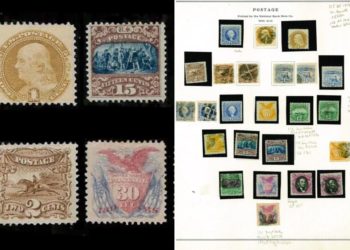Peter M. Fishbein, a prominent litigator who helped build the New York law firm Kaye Scholer into a national powerhouse, represented the disgraced saving-and-loan mogul Charles H. Keating Jr. and was sued by the government for allegedly concealing his client’s corruption, died on Sept. 25 at his home in Harrison, N.Y. He was 91.
His son Stephen Fishbein confirmed the death.
In 1992, near the apex of the $150 billion savings-and-loan crisis in which thousands of thrifts collapsed and multitudes of depositors lost their savings, Kaye Scholer (where Mr. Fishbein was then a senior partner) agreed to pay $41 million to settle government accusations that it had misled regulators about the financial soundness of Mr. Keating’s bank, Lincoln Savings & Loan. The politically connected businessman became the most notorious figure in a banking scandal that symbolized 1980s greed.
Mr. Keating, the former chairman of Lincoln, a California-based thrift, was convicted of fraud on state charges in 1991 and on federal charges in 1993 and went to prison. He died in 2014.
The federal Office of Thrift Supervision accused Kaye Scholer and Mr. Fishbein, who represented Mr. Keating from 1984 to 1989, of withholding or misrepresenting information about Lincoln that the law firm had provided to regulators. The bank’s collapse in 1989 cost taxpayers about $3.4 billion.
Within days, Kaye Scholer capitulated to the government, which had originally sought $275 million in restitution. The firm admitted no guilt, however, and claimed it was bludgeoned into settling by the threat of financial ruin after the government froze its assets, causing panicky clients to threaten to jump ship. Representatives of Big Law, the top private firms in the country, expressed alarm that the government would seize assets to force a settlement.
The episode became one of the most high-profile legal ethics controversies of the 1990s. Articles in law reviews debated whether Kaye Scholer was a victim of government overreach or had crossed a line from zealous lawyering into unethical actions.
A 1993 article in The New York Times described Mr. Fishbein, a Harvard Law School graduate and former U.S. Supreme Court clerk who advised Democratic candidates, as “a smooth and elegant man, from whom it is difficult to pry anything very revealing, including emotions.”
Nonetheless, his anger flared over what he called the government’s abuse of power.
“If the government can do this to a Kaye Scholer,” he said, “think of what it can do to a poor schnook on Social Security.”
In August 1993, a disciplinary committee of the New York courts concluded after an investigation of Mr. Fishbein that he had done no wrong.
The committee’s chief counsel, Hal R. Lieberman, told The Wall Street Journal that he recognized there was a public clamor to see bankers, lawyers, someone, in handcuffs in the midst of the government shutting down more than 1,000 failing savings and loans.
“It probably would have been easier and better for our public image to file charges and make a big splash,” Mr. Lieberman said of Mr. Fishbein. “But at the end of the day, my conclusion was that there’s nothing here.”
Mr. Fishbein, a partner at Kaye Scholer beginning in 1967, when the firm was known as Kaye, Scholer, Fierman, Hays & Handler, was regarded as a lawyer of broad talents. He worked on mergers and acquisitions, First Amendment cases and criminal defense. He argued before the Supreme Court on behalf of Texaco and represented the maverick investor Herbert J. Siegel, who became a billionaire after helping to clear the way for Warner Communications to merge with Time Inc. in 1989.
After becoming Kaye Scholer’s managing partner in 1984 — the firm’s top lawyer, responsible for its business strategy — Mr. Fishbein accelerated its expansion, opening offices in Los Angeles, Hong Kong, Beijing and Brussels. He retired in 2013, and the firm merged in 2017 with Arnold & Porter.
Peter Melvin Fishbein was born on June 20, 1934, in Manhattan, and was the elder of two sons of Arthur Fishbein, a music copyright lawyer, and Lotta (Chary) Fishbein.
He grew up in Mount Vernon, N.Y., graduated from A.B. Davis High School in 1951 and received a bachelor’s degree from Dartmouth College in 1955. At Harvard Law School, where he graduated in 1958, he was an editor on the law review with the future Supreme Court Justice Ruth Bader Ginsburg.
Mr. Fishbein clerked for a year for Justice William J. Brennan Jr., a leader of the Supreme Court’s liberal wing, and helped draft the court’s unanimous opinion in Cooper v. Aaron, a case in 1958 that prohibited Arkansas from delaying school desegregation that had begun the previous year in Little Rock.
During the Kennedy administration, Mr. Fishbein served as deputy secretary general of the International Peace Corps, an organization to encourage other nations to create versions of the U.S. Peace Corps.
He took leaves of absence from his law practice to work on former U.S. Attorney General Robert F. Kennedy’s successful 1964 U.S. Senate race in New York and on Mr. Kennedy’s 1968 presidential campaign. Mr. Fishbein traveled with Mr. Kennedy as an issues adviser, funneling to the candidate and his speechwriters the ideas of experts on topics such as reducing smog in Los Angeles and ending the Vietnam War.
Mr. Fishbein married Bette Klinghoffer in 1957. In addition to his wife and son Stephen, he is survived by two other sons, Bruce and Gregory; and seven grandchildren.
In 1995, after Mr. Brennan’s death, Mr. Fishbein and other former clerks of the justice and his family established the Brennan Center for Justice, a progressive policy institute at New York University School of Law. Mr. Fishbein served on the center’s board as well as on the boards of White Plains Hospital and the State University of New York at Purchase.
Trip Gabriel is a Times reporter on the Obituaries desk.
The post Peter M. Fishbein, Lawyer Named in Savings-and-Loan Lawsuit, Dies at 91 appeared first on New York Times.




